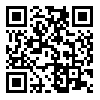Sat, Feb 21, 2026
[Archive]
Volume 5, Issue 4 (2-2024)
Int. J. Ethics Soc 2024, 5(4): 58-67 |
Back to browse issues page
Download citation:
BibTeX | RIS | EndNote | Medlars | ProCite | Reference Manager | RefWorks
Send citation to:



BibTeX | RIS | EndNote | Medlars | ProCite | Reference Manager | RefWorks
Send citation to:
Kalantari B, Salajeghe S, Sheykhi A. Investigating Ideals of Professional Ethics in Islamic banking. Int. J. Ethics Soc 2024; 5 (4) :58-67
URL: http://ijethics.com/article-1-269-en.html
URL: http://ijethics.com/article-1-269-en.html
1- Department of Management, Kerman Branch, Islamic Azad University, Kerman, Iran
2- Department of Management, Kerman Branch, Islamic Azad University, Kerman, Iran ,s.salajeghe@iauk.ac.ir
3- Department of Statistics, Faculty of Mathematics and computer, Shahid Bahonar University of Kerman, Kerman, Iran
2- Department of Management, Kerman Branch, Islamic Azad University, Kerman, Iran ,
3- Department of Statistics, Faculty of Mathematics and computer, Shahid Bahonar University of Kerman, Kerman, Iran
Abstract: (1989 Views)
Introduction: Islamic banking is a type of banking or banking activity that is consistent with the rules of Islam and naturally emphasizes moral issues. The purpose of this study is to examine the ideals of professional ethics in Islamic banking in Iran.
Material & Methods: According to the purpose of the present research, it is an applied research type and according to the method of data collection, it is a non-experimental research type of correlation research and structural equation modeling. The statistical population included the managers of the Agricultural Bank, who were selected by a complete sampling of 430 people. The instrument was a questionnaire. Finally, the data were analyzed by structural equation method.
Results: The results show that there is a significant and positive relationship between the two dimensions of organizational structure and the ideas of professional ethics, as well as between the legal, public, free and royal thinking styles of managers and the ideas of professional ethics. While there is a significant and negative relationship between conservative thinking style and ideals of professional ethics.
Conclusion: The presence of moral values in the banking industry means the elimination of all criminal operations including fraud, bribery and corruption, and it is undoubtedly influenced by the thinking styles of employees and managers and organizational variables.
Material & Methods: According to the purpose of the present research, it is an applied research type and according to the method of data collection, it is a non-experimental research type of correlation research and structural equation modeling. The statistical population included the managers of the Agricultural Bank, who were selected by a complete sampling of 430 people. The instrument was a questionnaire. Finally, the data were analyzed by structural equation method.
Results: The results show that there is a significant and positive relationship between the two dimensions of organizational structure and the ideas of professional ethics, as well as between the legal, public, free and royal thinking styles of managers and the ideas of professional ethics. While there is a significant and negative relationship between conservative thinking style and ideals of professional ethics.
Conclusion: The presence of moral values in the banking industry means the elimination of all criminal operations including fraud, bribery and corruption, and it is undoubtedly influenced by the thinking styles of employees and managers and organizational variables.
Type of Study: Original Article |
Subject:
Special
Received: 2023/06/5 | Accepted: 2023/07/4 | Published: 2024/02/1
Received: 2023/06/5 | Accepted: 2023/07/4 | Published: 2024/02/1
Send email to the article author
| Rights and permissions | |
 |
This work is licensed under a Creative Commons Attribution 4.0 International License. |








